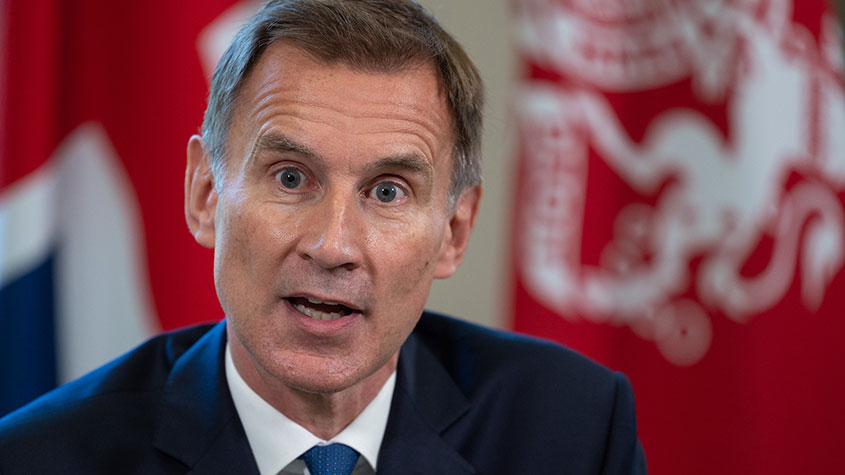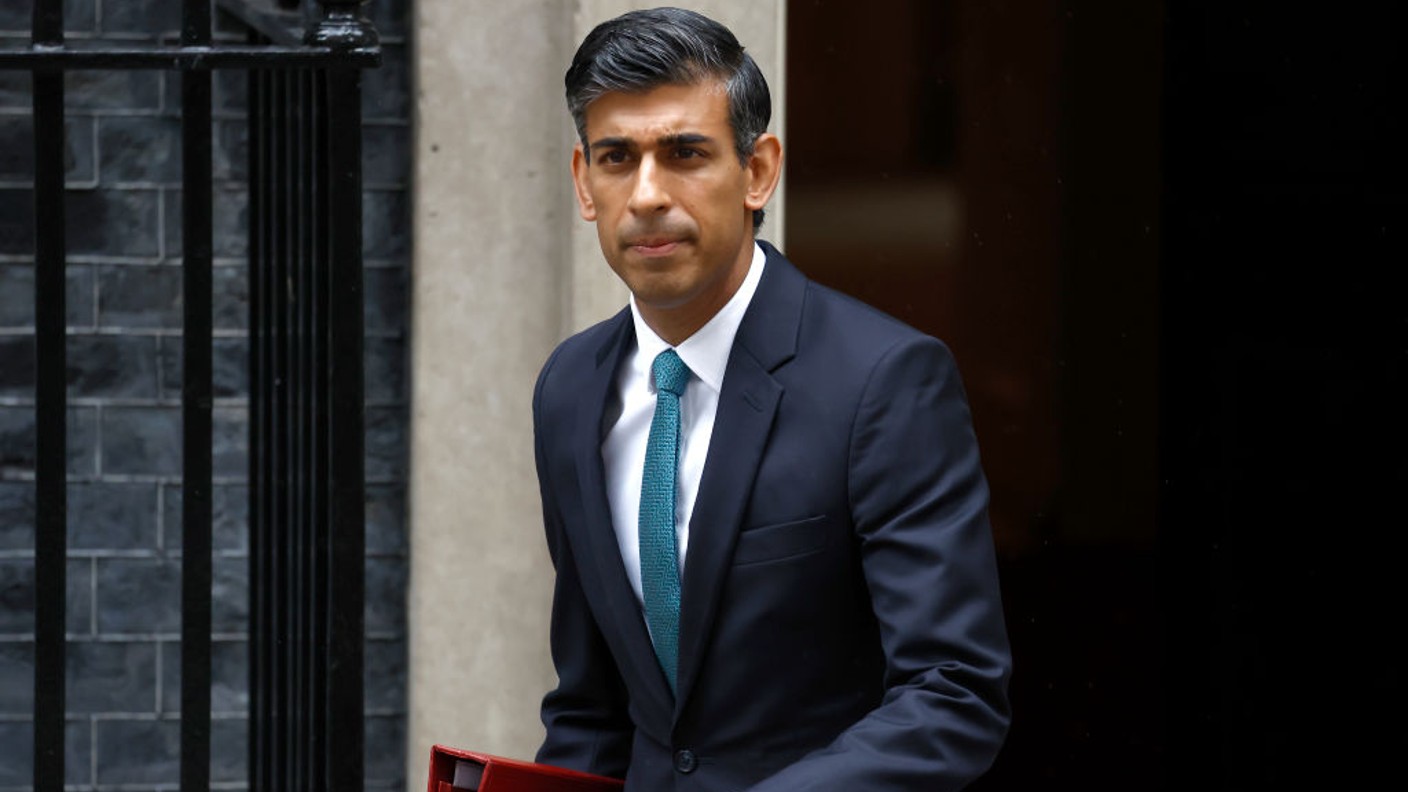The £1m pension problem: Why you may not get 25% tax-free cash
The pension lifetime allowance has been axed, but there's a sting in the tail. Savers with large pensions could see their tax-free cash shrunk to just 10%. We explain what’s happening and what action you should take


Get the latest financial news, insights and expert analysis from our award-winning MoneyWeek team, to help you understand what really matters when it comes to your finances.
You are now subscribed
Your newsletter sign-up was successful
Want to add more newsletters?

Twice daily
MoneyWeek
Get the latest financial news, insights and expert analysis from our award-winning MoneyWeek team, to help you understand what really matters when it comes to your finances.

Four times a week
Look After My Bills
Sign up to our free money-saving newsletter, filled with the latest news and expert advice to help you find the best tips and deals for managing your bills. Start saving today!
Pension savers risk losing thousands of pounds of tax-free cash due to lifetime allowance reforms that came into effect in April.
Savers typically receive 25% of their pension pot tax-free, but this could be reduced to just 10% over the next decade.
This is because a maximum limit of £268,275 tax-free cash was introduced in April. It was one of former chancellor Jeremy Hunt’s pension reforms. Back in last year's March Budget, he famously declared that the £1,073,100 lifetime allowance would be scrapped. The allowance is the amount you can put into workplace pensions and self-invested personal pensions (Sipps) without being hit with a tax penalty of up to 55% when you come to withdraw it.
MoneyWeek
Subscribe to MoneyWeek today and get your first six magazine issues absolutely FREE

Sign up to Money Morning
Don't miss the latest investment and personal finances news, market analysis, plus money-saving tips with our free twice-daily newsletter
Don't miss the latest investment and personal finances news, market analysis, plus money-saving tips with our free twice-daily newsletter
But what many people did not notice was that the former Conservative government also set a maximum of 25% of the lifetime allowance (which was £268,275) as a limit on tax-free cash.
It means if your pension grows to £1.5m in the next few years, the cap on the tax-free cash will remain at £268,275, which is the equivalent of just 18% of the nest egg.
The wealth manager Quilter calls it a “stealth tax”, and warns it will have “major consequences for those who, through careful financial planning, have accrued significant pension wealth”.
Roddy Munro, head of tax and pensions at Quilter, comments: “With savers already impacted by fiscal drag as well as the reduction in the capital gains annual exempt amount and the dividend allowance, now those with large pension funds will soon feel the full effect of the freezing of the amount they can take tax-free from their pensions.
“But people can act as there are a number of ways to avoid these Machiavellian reforms.”
It's possible that the goalposts on the lifetime allowance and tax-free cash could move again under the new Labour government.
Chancellor Rachel Reeves could reveal changes to pensions in the autumn Budget on 30 October. This could include cutting pension tax relief, reintroducing the lifetime allowance, or lowering the amount of tax-free cash that can be taken - although these would all be very unpopular for older savers with large pension pots.
How fiscal drag affects pensions tax-free cash
According to Quilter, those who have reached or are set to reach the previous lifetime allowance will see the amount of tax-free cash available to them shrink in percentage terms and in purchasing power as their pension grows.
After a decade, assuming investment growth of 6% a year, a £1,073,100 pension would be worth £1,921,759. If the tax-free lump sum stayed at £268,275, a retiree could only withdraw 14% of their pension tax-free.
If you also factor in inflation at 3% a year, the value of the tax-free lump sum after a decade drops to £199,622, or just 10% of the retirement pot.
| Row 0 - Cell 0 | Pension pot value | Maximum tax-free cash | Tax-free cash percentage | Maximum tax-free cash after inflation** | Tax-free cash percentage after inflation** |
| Today | £1,073,100 | £268,275 | 25% | £268,275 | 25% |
| 5 years’ time | £1,436,050* | £268,275 | 19% | £231,416 | 16% |
| 10 years’ times | £1,921,759* | £268,275 | 14% | £199,622 | 10% |
Source: Quilter. *Assumes 6% annual investment growth. **Assumes 3% inflation.
How to beat the tax-free cash squeeze
About 1.6 million people are set to breach the previous lifetime allowance by 2026, with many more set to exceed it in the years to come.
Savers are being urged to take action over the fixed tax-free lump sum, or face a pension inertia trap.
A key consideration is at what point you decide to “crystallise” your pension. This occurs as soon as you withdraw money from it, such as your tax-free cash.
If you crystallise your pension earlier than planned, there are two issues to be aware of. First, money that is withdrawn from a pension will lose its advantageous inheritance tax status.
Second, you trigger the money purchase annual allowance (MPAA), which means the maximum you can contribute to your pensions in a tax year is slashed from £60,000 to £10,000 a year.
Some savers may wish to crystallise earlier than planned and invest their tax-free cash in other products to both protect and make their tax-free cash rights work harder.
Munro explains: “Some people with larger pensions are deciding to take their tax-free cash earlier and utilise other products. Where this is the case, it is important people consider the likes of ISAs and insurance bonds to shield their long-term savings from the taxman should their pension be above the traditional lifetime allowance.
"Insurance bonds in particular are back in vogue following these reforms as they can help to control the tax payable, simplify tax reporting and sit within a trust for inheritance tax planning purposes.”
Alice Haine, personal finance analyst at the investment platform Bestinvest, says that if savers take their tax-free cash early they need to consider carefully that they are giving up tax-free investment growth and the money will also be liable for inheritance tax.
Meanwhile, savers with defined benefit pension schemes may also be worried about the new tax-free cash rules.
Munro notes: “These savers may have to consider more complex planning to protect their tax-free cash amount. The best outcome for consumers will very much be driven by their own and their family’s circumstances, so taking professional advice will be critical.”
Get the latest financial news, insights and expert analysis from our award-winning MoneyWeek team, to help you understand what really matters when it comes to your finances.

Ruth is an award-winning financial journalist with more than 15 years' experience of working on national newspapers, websites and specialist magazines.
She is passionate about helping people feel more confident about their finances. She was previously editor of Times Money Mentor, and prior to that was deputy Money editor at The Sunday Times.
A multi-award winning journalist, Ruth started her career on a pensions magazine at the FT Group, and has also worked at Money Observer and Money Advice Service.
Outside of work, she is a mum to two young children, while also serving as a magistrate and an NHS volunteer.
-
 Should you buy an active ETF?
Should you buy an active ETF?ETFs are often mischaracterised as passive products, but they can be a convenient way to add active management to your portfolio
-
 Power up your pension before 5 April – easy ways to save before the tax year end
Power up your pension before 5 April – easy ways to save before the tax year endWith the end of the tax year looming, pension savers currently have a window to review and maximise what’s going into their retirement funds – we look at how
-
 Insurance tax cut could save homeowners and drivers £100s
Insurance tax cut could save homeowners and drivers £100sNews Chancellor Jeremy Hunt urged to cut insurance premium tax to help households manage rising costs
-
 Will IHT be cut?
Will IHT be cut?News Sunak could make cuts to Inheritance Tax cuts later this year, reports suggest. We explain what this could mean for you.
-
 Budget 2023: Pension lifetime allowance scrapped
Budget 2023: Pension lifetime allowance scrappedNews The cap on the amount that savers can build up in their pensions before paying extra tax has been abolished in a surprise announcement by the chancellor
-
 Triple lock to stay: how will it affect your pension?
Triple lock to stay: how will it affect your pension?Analysis Triple lock looks set to stay, but what it is and what does it mean for your retirement income?
-
 Autumn Statement: Energy Price Guarantee extended – but will not be as generous
Autumn Statement: Energy Price Guarantee extended – but will not be as generousNews Hunt will extend the Energy Price Guarantee, which was due to end in April 2023. But, the support will be significantly lower. Here’s everything you need to know.
-
 Stamp duty cuts will stay, but only until 2025. How much will you save?
Stamp duty cuts will stay, but only until 2025. How much will you save?News Hunt: Stamp duty announced in the September mini-Budget will end in 2025, chancellor Hunt has revealed. What does this mean for homebuyers?
-
 Rishi Sunak's £50bn problem - why taxes could go up
Rishi Sunak's £50bn problem - why taxes could go upAnalysis New PM Rishi Sunak is facing the daunting task of sorting out the UK economy. Here we look at what his appointment could mean for your money.